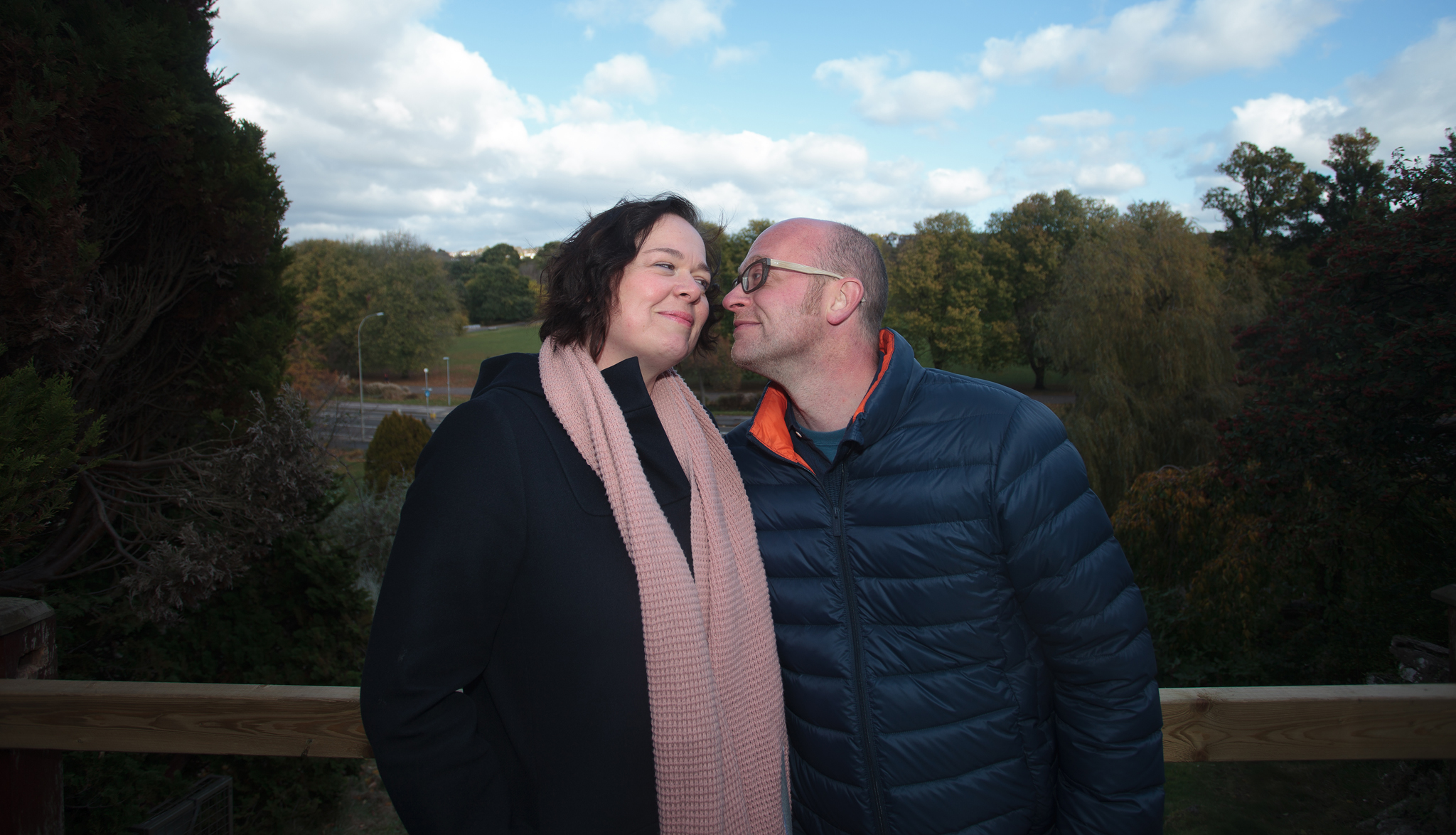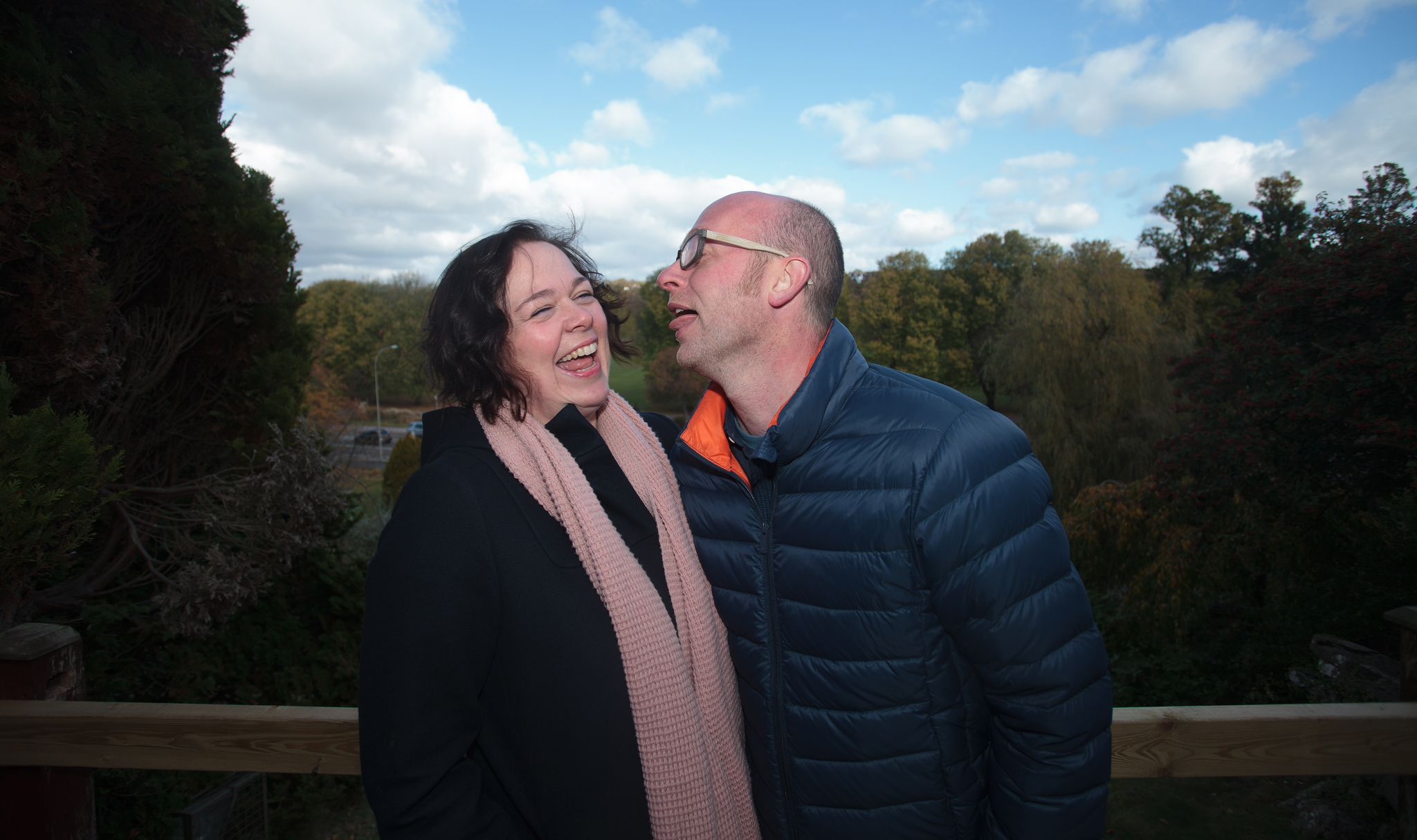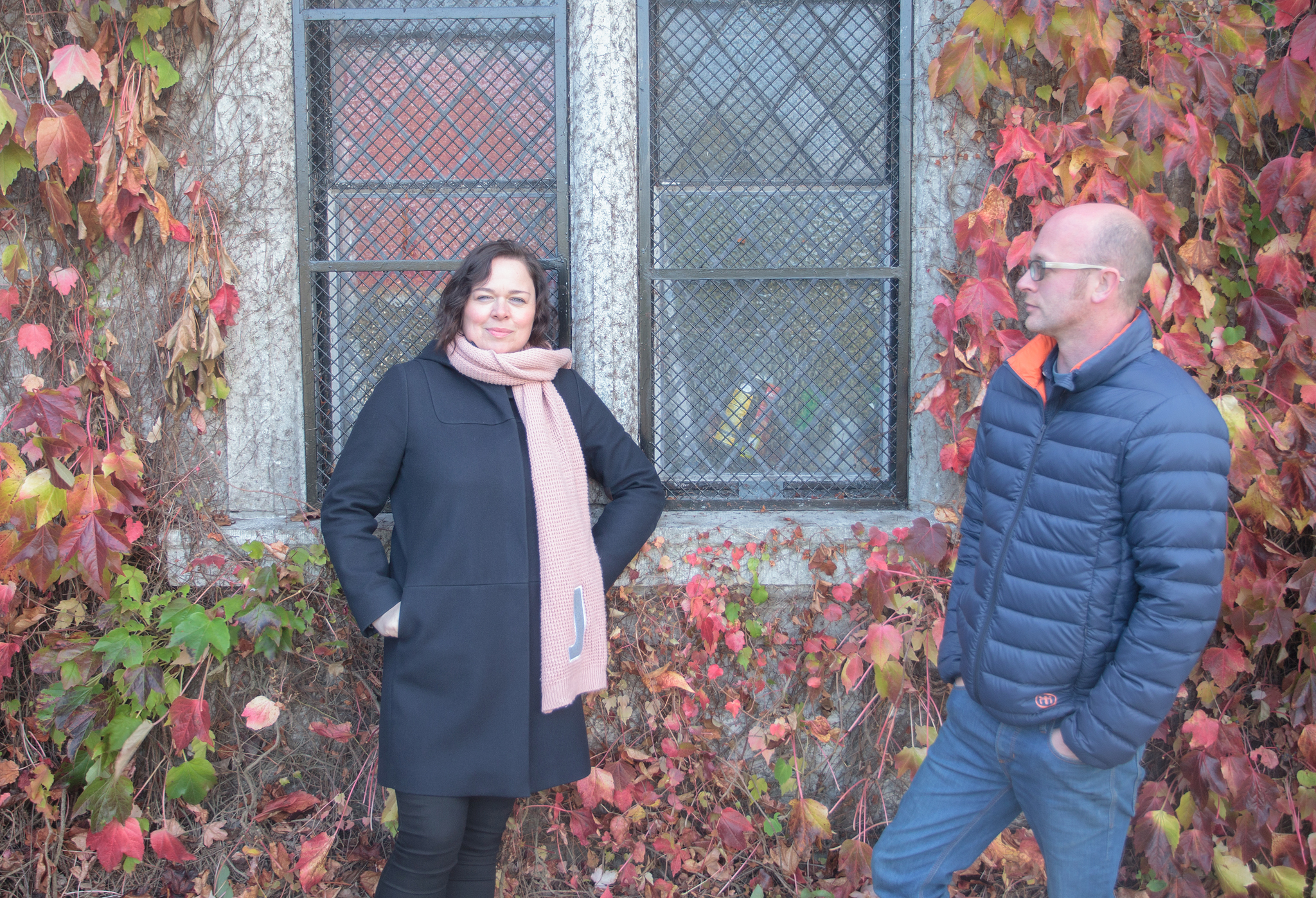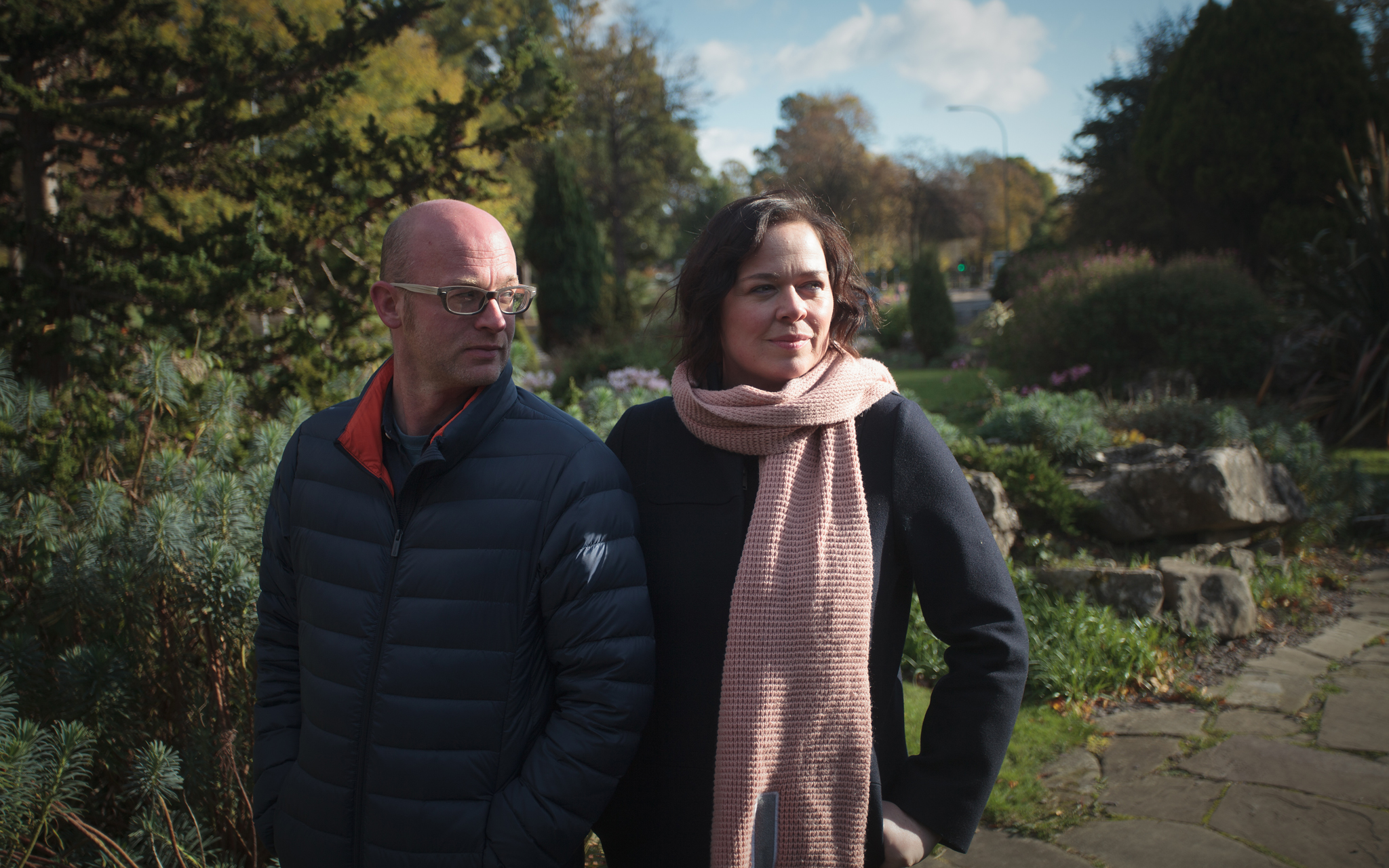MGIF S2 E8: Jessica Curry and Dan Pinchbeck of The Chinese Room
Hit play for the podcast interview below. MGIF is also available on iTunes or with whatever podcast software you use. Just search for "Making Games Is Fun".
I've always been attracted to the idea of the mind as a physical landscape; an ethereal expanse of rolling hills, buildings and artefacts, comprising memories and experiences. Sometimes you're there voluntarily, tramping through vast, open fields, peering at the horizon for answers. Sometimes, you're a prisoner in a dimly-lit room, pressing your hands against the walls, looking for an exit. Sometimes, you wander through corridors built from moments passed; the architecture compressed with time; warped, reordered and distorted by emotion and the treachery of memory.
The Chinese Room is a studio built on its worlds. In life, we build our own worlds with the ones we love and the people who matter to us. Videogame worlds, from Yaughton to Yharnam, can be reflections of our innermost thoughts and emotions. Taking a journey through our own minds can be a frightening and lonely experience, but we warm up those cold, empty, quiet places by filling them with memories and music, offering illumination and guidance in those dark places where we fear to tread.
My own journey to visit Jessica Curry and Dan Pinchbeck of The Chinese Room starts a bit like an anxiety dream, as I accidentally sign up for a training course for Unison on my arrival. The Chinese Room are situated upstairs in Brighton's Unison building, and it turns out "training room" sounds a lot like "Chinese Room". When you consider the success of their games, and the scope of the heartbreakingly beautiful Everybody's Gone To The Rapture, it's easy to forget that they are still a very small, close-knit team, tucked away in the upstairs of a shared office building. After a few moments of confusion, I resist the temptation to go undercover like the world's shittest spy, remove myself from the training course, and find my way to the correct floor.
It's been tricky for us to align our diaries and I feel a little apprehensive about pulling Dan and Jessica away from Total Dark, the working title for their current game. This feeling is alleviated immediately when Dan greets me emphatically at the door, thanks me for coming down and gives me the tour. He makes it clear that he's glad I'm here and now I feel less like a distraction to their day.
Cup of tea in hand, I'm taken to an adjacent room, where Jessica is working separately on some music. Personally, I hate it when I'm in the middle of writing and someone barges through my door, but Jessica assaults me with a tsunami of niceness. You'd be forgiven for expecting to be met by a more serious, hardened character, given the changes she has had to make to her working life following ill health, publisher woes and the never-ending battle against systemic sexism, details of which she published in a blog post back in October of 2015; instead, I'm inspired by her positivity, warmth and energy.
As the three of us sit down and chat, I very quickly appreciate the dynamic between the two of them. Dan is an energetic, confident person who is fiercely intelligent. He bubbles with creativity and knows his own mind. He argues points passionately and, every now and then, as he picks up a head of steam, Jessica will cut in with an incisive interjection, one which will (lovingly) earth and temper Dan's emphatic point. You can see that it's an interaction that has been unconsciously refined and perfected over the course of many, many years between two people who deeply love and understand each other, and its beautiful to see. As they discuss and debate, there's an air of total respect, and it becomes clear that this teamwork must persist throughout their working relationship, and is one of the elements behind the success of their games.
"I generate a lot of the momentum and Jess creates a lot of the focus," Dan tells me, "in terms of how we work creatively together"
"I've always said that if I made a game it'd never get finished," adds Jessica, "and if Dan made one it'd be shit [laughs] but between the mad visionary and the anal retentive we've kind of had a good partnership I think; I've been Dan's editor in a lot of ways".
As a husband and wife to each other, as well as parents to a teenage boy, Jessica and Dan have built both real and digital worlds together. Dan is the one who brings a thousand ideas, Jessica is the one who distils and processes those ideas; if Dan is the train of thought then Jessica is the train driver. This special relationship makes the studio unique, but I worry how this will change now Jessica plans to take a further step away from The Chinese Room by leaving the office to focus on writing music.
"The games we're developing now are the first games that I haven't had a direct day to day development relationship with," laments Jess, when I ask her how the step back has felt. "That's been really tough for me, actually; it's been very strange because I've been there every step of the way in every element for the first three games, whereas now I'm going to be basically writing the music for the new games."
It's this soft separation from the office that she feels isn't working, as the rest of the team hold too much respect for her to not ask her opinion on various matters.
"Every day someone will come in and ask me to have a look at something, so I'm only half out", she explains. "I'm going to move out of the offices at The Chinese Room because it's really tough to have one foot in and one foot out; it's quite painful.
"I feel like I need a clean break from the studio, because my personality dictates I'm not very good at having that half foot in. I love writing music and I think that's what I rediscovered with Rapture; that passion for what I'm really good at.
"Running the company was always Dan's dream, it was never mine. But I always helped. I really enjoyed running the company but it has taken me away from my own passion and my own dream, which is to write as much music as I can."
Dan will miss Jessica's presence in the studio, both as a loved one and a coworker, but he tells me that, "being a husband trumps being a business partner," so he feels that the decision is the right one.
Jessica's position is an analogue to the position of the games industry in general; on one side we have self-described "hardcore gamers" telling us that the medium doesn't need or want change, diversity or deviation of any kind from the norm; on the other, we have the scoffing newsreader, who raises his eyebrows and voice with an air of incredulity when speaking from a position of complete ignorance about a game which has been nominated for ten BAFTAs.
And here we are, stuck in the middle.
Why does it so often feel like a fight? In what way does it help the medium to hound out people with different experiences who come at videogames from a different angle? Why use violent threats to oppose an approach which breeds innovation and progression?
Although I am saddened to learn of Jessica's plans to further remove herself from the studio, she remains a keystone of The Chinese Room and a major reason the studio's identity is so prominent in their titles. She is strong and maternal, resilient and sensitive, all the while maintaining an irrepressible joy for life, quietly and gently defiant in the face of illness and adversity. She is the kind of person who will read all that and chuckle about it, but I think that when we lose people like Jessica from the industry, we're walking backwards. Whatever the future holds for Jessica, she will leave her indelible mark on the studio's games - past, present and future - through her music.











